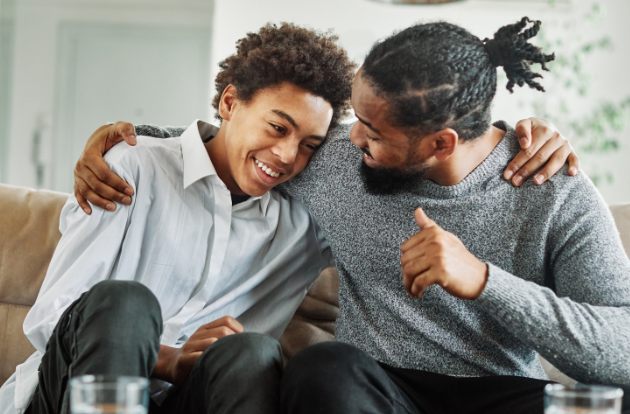TSI staff participated in Dr. Isha Metzger’s insightful webinar entitled, Cultural Considerations for Integrating Racial Socialization in TF-CBT for Black Youth & Families. Dr. Metzger is a trailblazing Licensed Cultural Psychologist, thought leader, and advocate for culturally responsive mental health care. This webinar was of special interest because in 2024, TSI undertook a major revision of the Risking Connection training based on the belief that trauma training and trauma-informed care must address the trauma of racism.
The training provided an in-depth exploration of racial socialization, which is the process through which parents, family members, and other significant adults transmit messages about race and racism to children. One example that holds for many generations is “The Talk,” a colloquial expression for a conversation Black parents in the U.S. feel compelled to have with their children and teenagers about the dangers they face due to racism or unjust treatment from authority figures, law enforcement or other parties, and how to de-escalate them.
Dr. Metzger reviewed the well-documented negative effects of racial discrimination on Black Americans. She discussed one study that found that anti-Black racist beliefs emerge as early as age four. In particular, White children have been found to have more negative attitudes towards Black peers and a preference for White over Black children as playmates. Black children also experience racism from adults, including being disciplined more harshly in school from an early age.
Many of the client agencies we work with at TSI serve as caregivers to Black youth who enter their doors. These children typically endured multiple traumas, including racial trauma. Some treaters may be uncomfortable talking about race, especially with young people. Fear of saying the wrong thing or causing further harm can stand in the way of healing conversations. Dr. Metzger offered many tips for communicating with children about racism. Here are just a few:
.png?width=467&height=467&name=Talking%20about%20Racism%20(1).png)
- There is no right or wrong way to do this. Be kind to yourself and acknowledge the emotions you and the youth may be feeling.
- Address your own anxiety and stress in a healthy way.
- Be honest and explain what racism is and how it is wrong.
- Allow them to openly express emotions and tell them it is okay to feel these ways. Use verbal and nonverbal language to communicate your care and concern.
Feel free to download this visual aid.
Dr. Metzger delivered a plethora of resources to enhance culturally responsive care for Black youth and family healing. For those who are part of our network of Risking Connection (RC) agencies, register for the October 16th RC Webinar: “And How Are the Children?: Wounds of Racial Trauma on Youth and Our Role as Treaters for more of those gems and a deeper look into the impacts of racism on youth.
Trainers Corner | Traumatic Stress Institute - Klingberg Family Centers


